Devon Archer Spills The Beans: Tells Congress About Shady Burisma Dealings, Joe Biden’s “More Than 20” Conversations
Hunter Biden’s former business partner Devon Archer has spilled the beans to Congress, telling lawmakers in a closed-door session that Burisma Holdings pressured Hunter Biden in December 2015 to ‘deal with’ a Ukrainian prosecutor who was investigating the firm for corruption – shortly before then-VP Joe Biden threatened Ukraine with a quid-pro-quo over US aid in exchange for firing said prosecutor.
According to Just the News, Archer also told the House Oversight and Accountability Committee that Hunter Biden was hired to sit on the board of Burisma because his family’s “brand” had value at a time when the firm was facing corruption allegations from not only Ukraine’s own prosecutor general’s office, but the US and Great Britain as well.
“Devon Archer testified that the value of adding Hunter Biden to Burisma’s board was ‘the brand’ and confirmed that then-Vice President Joe Biden brought the most value to ‘the brand,'” an anonymous source told JTN. “Archer also stated that Burisma would have gone under if not for ‘the brand.”
Selling the brand
Archer also contradicted Joe Biden’s claims that he had never met with Hunter Biden’s foreign business associates – telling the committee that Joe Biden had gotten on speakerphone over 20 times with his son’s business clients – not to engage in specific business, but he “was put on the phone to sell ‘the brand.'”
The former business partner at the Rosemont Seneca firm, who was convicted in 2018 in a tribal bond fraud scheme, also told lawmakers that Hunter Biden was pressured in late 2015 to help deal with Prosecutor General Viktor Shokin’s corruption investigation as Joe Biden was preparing to travel to Ukraine. -JTN
“In December 2015, Mykola Zlochevsky, the owner of Burisma, and Vadym Pozharski, an executive of Burisma, placed constant pressure on Hunter Biden to get help from D.C. regarding the Ukrainian prosecutor, Viktor Shokin,” the source told JTN. “Shokin was investigating Burisma for corruption. Hunter Biden, along with Zlochevsky and Pozharski, ‘called D.C.’ to discuss the matter. Biden, Zlochevsky, and Pozharski stepped away to take make the call.”
A few days after that meeting, Joe Biden visited Ukraine as vice president and began an effort to force Ukraine’s president to fire Shokin, eventually threatening to withhold $1 billion in U.S. loan guarantees if the termination did not happen. Biden’s defenders have long maintained the firing was not related to Burisma and was a result of U.S. policy because the Obama administration felt Shokin was corrupt.
Devon Archer’s testimony:
•In December 2015, Mykola Zlochevsky, the owner of Burisma, and Vadym Pozharski, an executive of Burisma, placed constant pressure on Hunter Biden to get help from D.C. regarding the Ukrainian prosecutor, Viktor Shokin. Shokin was investigating Burisma…— Miranda Devine (@mirandadevine) July 31, 2023
Rep. Marjorie Taylor Greene echoed JTN‘s source, telling the Daily Caller: “The biggest significant thing that has come out so far is that we now have proof that Joe Biden lied. He’s been telling everyone for years now that he knows nothing about Hunter Biden’s business deals, that he’s never talked to his son about it. Well, this morning Devon Archer confirmed for all of us that that is not true.”
Devon Archer, Hunter Biden’s former best friend and business associate, asked Hunter why appointees from the Obama/Biden Admin arrested him.
Hunter explained, “It’s democracy…every presidents family is held to a higher standard…it’s the price of being the most powerful group… pic.twitter.com/K5PFVKLbHm
— Rep. Marjorie Taylor Greene
(@RepMTG) July 31, 2023
“He told us in his transcribed interview that he heard Hunter Biden speak to Joe Biden more than 20 times about their business deals. Not about anything else, but about the business deals,” she added.
Meanwhile, trust fund Democrat Dan Goldman (Schiff Jr.) continues to run cover…
Just IN: After years of denying speaking with Hunter Biden’s business partners abroad, lawyer now says of POTUS “he never said he has never spoken with anyone”, and might have said “hello” to SOME business partners. pic.twitter.com/8OE2160RCU
— Anthony Cabassa (@AnthonyCabassa_) July 31, 2023
This was always predictable about where this was headed.
Next will be “he would have been stupid not to take bribes from hostile foreign entities.” https://t.co/LrhJREocDr
— Stephen L. Miller (@redsteeze) July 31, 2023
And Democrats are of course starting to cry foul at the rules they themselves made during the Trump years…
Welcome to the new rules you guys created! https://t.co/xyemugAXia
— Stephen L. Miller (@redsteeze) July 30, 2023
Tyler Durden
Mon, 07/31/2023 – 16:40
via ZeroHedge News https://ift.tt/ZVoE8nd Tyler Durden


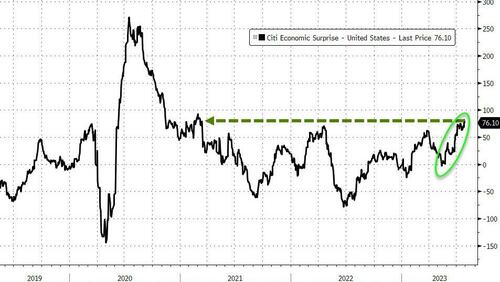
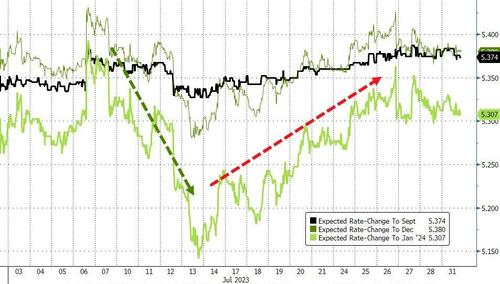
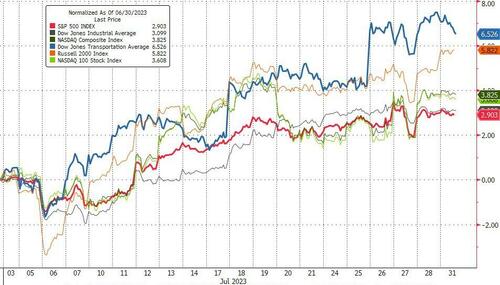
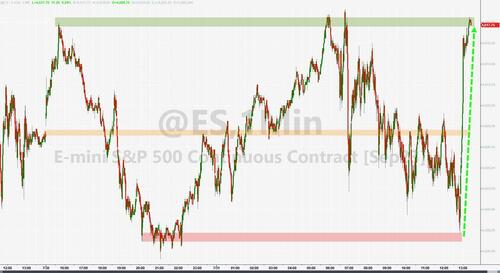
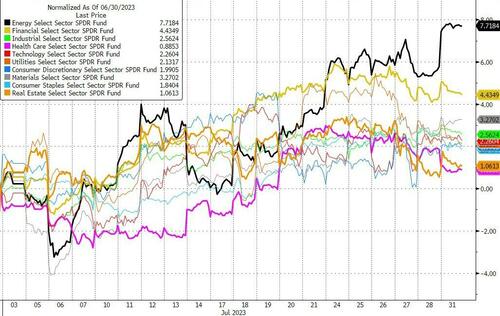

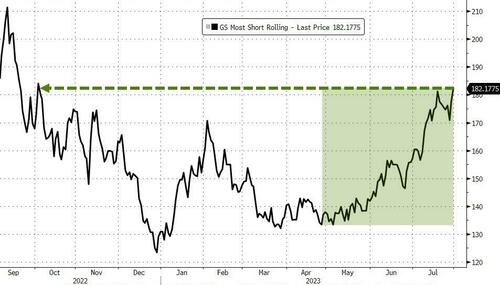
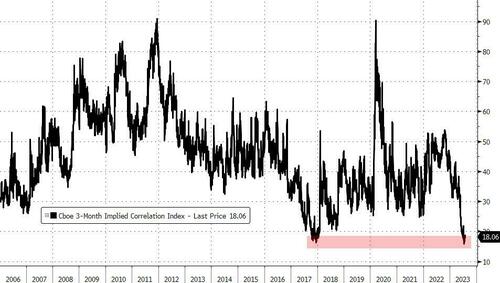
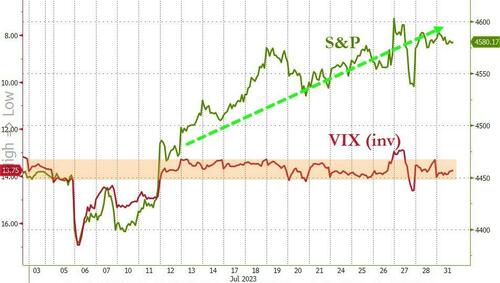

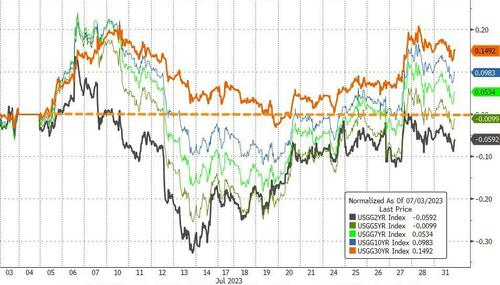
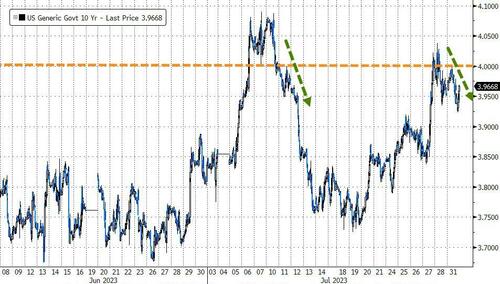
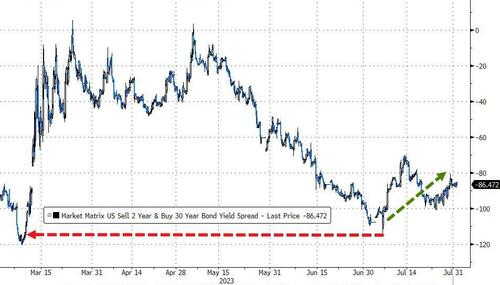
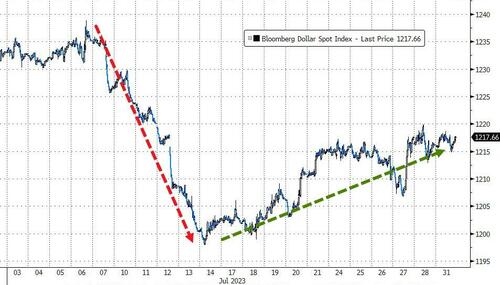
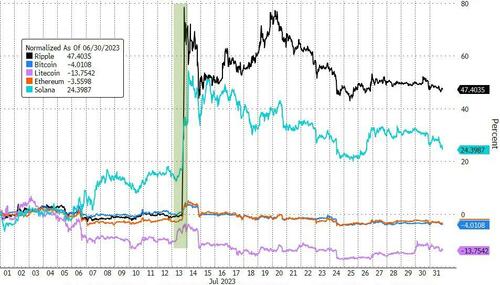
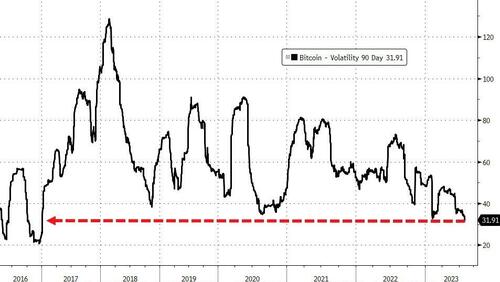

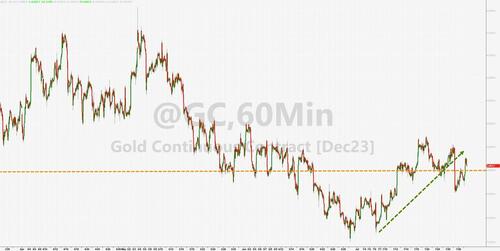
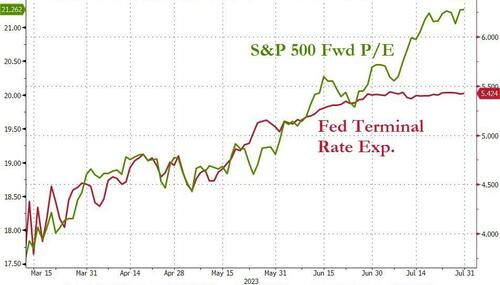
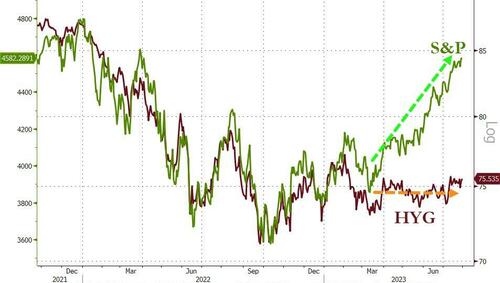




 Pegasus10
Pegasus10 (@Pegasus10000069)
(@Pegasus10000069) 

